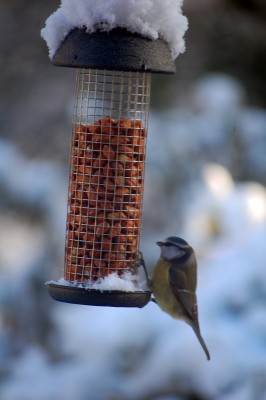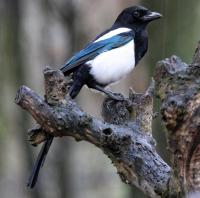- Home
- FAQs
- Customer Video Gallery
- Customer Photo Gallery
- Bird Facts
- Bird Food Blog
- Bird Information
- Feeding Advice
- Small Animal Information
- A to Z of Guinea Pigs
- A to Z of Hamsters
- A to Z of Rabbits
- Basic Care for Guinea Pigs
- Basic Care for Hamsters
- Basic Care for Rabbits
- Basic care for Chinchillas
- Basic care for Ferrets
- Basic care for Gerbils
- Basic care for Mice
- Basic care for Rats
- Buying a Healthy Small Animal
- Does your Reptile need a Licence
- Equipment for Ferrets
- Equipment for Hamsters
- Equipment for Mice
- Equipment for your Chinchilla
- Equipment for your Gerbil
- Equipment for your Guinea Pig
- Equipment for your Rabbit
- Keeping a House Rabbit
- Dog Information
- Cat Information
- Customer Information
- Fat Balls
- Suet Pellets
- Straights
- Seed Mixes
- Suet Treats
- Mealworms
- Bird Feeders
- My Account
Feeding Wild Birds
 Many people feed wild birds in their gardens for a host of different reasons, enjoying the varied songs, colours and antics of these little feathered visitors and feeling that each of us is doing our bit to help the local wildlife. There are some people, however, who claim this is wrong, that to feed wild birds is interfering with nature, birds are eating ‘exotic’ foods not normally part of their natural diet and many birds in close proximity increases the risk of the spread of disease.
Many people feed wild birds in their gardens for a host of different reasons, enjoying the varied songs, colours and antics of these little feathered visitors and feeling that each of us is doing our bit to help the local wildlife. There are some people, however, who claim this is wrong, that to feed wild birds is interfering with nature, birds are eating ‘exotic’ foods not normally part of their natural diet and many birds in close proximity increases the risk of the spread of disease.Whilst, technically, some of this may be true, the changes in gardening and farming practices, land drainage, forestry and pollution have all had a hand in the decline in the numbers of many species of native and migratory birds. Egg producing places great demands on female birds and males are extremely active defending their territories and mates. Migratory birds need to build up large reserves of fat to see them safely to their far off wintering grounds, and during the cold of winter a small bird needs to eat up to 40% of its body weight daily to see it through to spring.
Many experts believe, by ensuring a plentiful supply of food, even ‘exotic’ foods such as peanuts and raisins, much of the preservation and growth of wild bird species and populations in and around our shores is dependent on these food sources. Both the RSPB and the BTO strongly support the feeding of wild birds throughout the year and believe gardens, particularly wild life friendly ones (please read 'Gardening For Wildlife'), to be a very important part of their conservation efforts providing more benefits than drawbacks. This approach is not just beneficial to the wild birds, as we also gain a great sense of satisfaction and a good deal of pleasure in watching the varied wild birds and other wild life enjoy our gardens.




